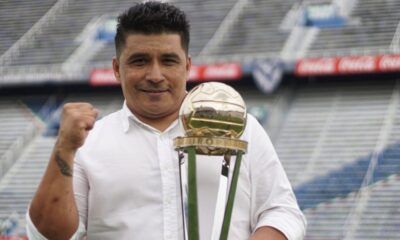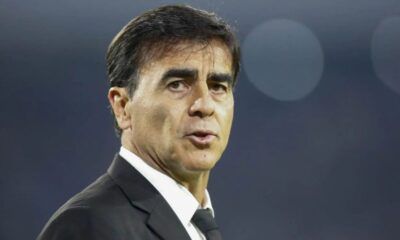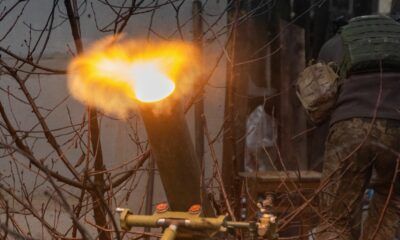INTERNACIONAL
Putin's AI doctrine seeks semi-automated military as Moscow could look to China for help, expert says

Russia increasingly looks toward artificial intelligence (AI) to address deficiencies in its battlefield capabilities and capacities that the invasion of Ukraine has exposed, according to experts.
«Russian futurists, Russian technologists, Russian developers are envisioning this slow evolution away from larger human involvement to where humans are going to be involved as little as possible,» Samuel Bendett, adjunct senior fellow in the Technology and National Security Program at the Center for a New American Security (CNAS), told Fox News Digital.
«Some of those statements were made prior to Russia’s disastrous invasion of Ukraine and Russia’s conduct in this war, which is very much manpower intensive… but this is something that the Russian military is keeping sort of on the horizon,» he said.
Bendett in his paper for CNAS argued that Russia’s keenness to adopt AI could lead the country to take greater risks as it seeks to catch up with the West. He relied on public statements, announcements and analysis of Russian-language media to develop his paper, which looks at major developments in robotics and AI spaces and as Russia seeks an «intellectualized» military that makes semiautomated decisions.
OPINION: HERE’S WHAT AIR FORCE, CONGRESS MUST DO NOW TO KEEP US COMPETITIVE
«Such sources offer a glimpse into Russian deliberations and debates on the role and utility of AI on the modern battlefield and help analysts understand what the Russians emphasize in terms of AI research and development,» Bendett wrote.
The greatest concern that Western officials may have regarding Russia’s intended use for AI is the integration of AI systems with its nuclear command, a goal that Bendett argues is on top of Russia’s list.
Russian President Vladimir Putin gives a speech during the Victory Day military parade, celebrating victory over Nazi Germany, at Red Square in Moscow on May 9, 2023. (Gavriil Grigorov/Sputnik/AFP via Getty Images)
While the main, immediate goal for Russia is to use AI for data collection, analysis and «situational awareness,» the military forces ultimately seek to integrate AI in decision-making, including when and how to deploy nuclear weapons.
«Repeated statements by officials within the Ministry of Defense and the government point to AI as a data analysis and decision-making tool,» Bendett said. «Therefore, nuclear forces are going to be part of that larger effort to integrate some of these more advanced technologies alongside analysis and understanding done by human operators.»
UK PARLIAMENTARY CANDIDATE RUNS AS ‘FIRST AI LAWMAKER’ WITH INTERACTIVE AI AVATAR
In his paper, Bendett expands on this point, saying that AI would allegedly help Russian officials «in the event the political leadership is incapacitated and no longer can make crucial decisions.» The system, called Perimeter, is an automatic nuclear weapons control system from the Cold War that played into the nation’s doctrine of Mutually Assured Destruction (MAD), but the system remains functional today, which Bendett notes as an indication of where Russia’s thinking lays.
«The system’s continued existence today implies the preference for semiautomatic, instead of fully automated, systems to meet the challenges of enormous stress, the pressure to understand the unfolding scenario in real time, and the possible lack of relevant information, along with emotions that affect human decision makers under stress,» Bendett writes.
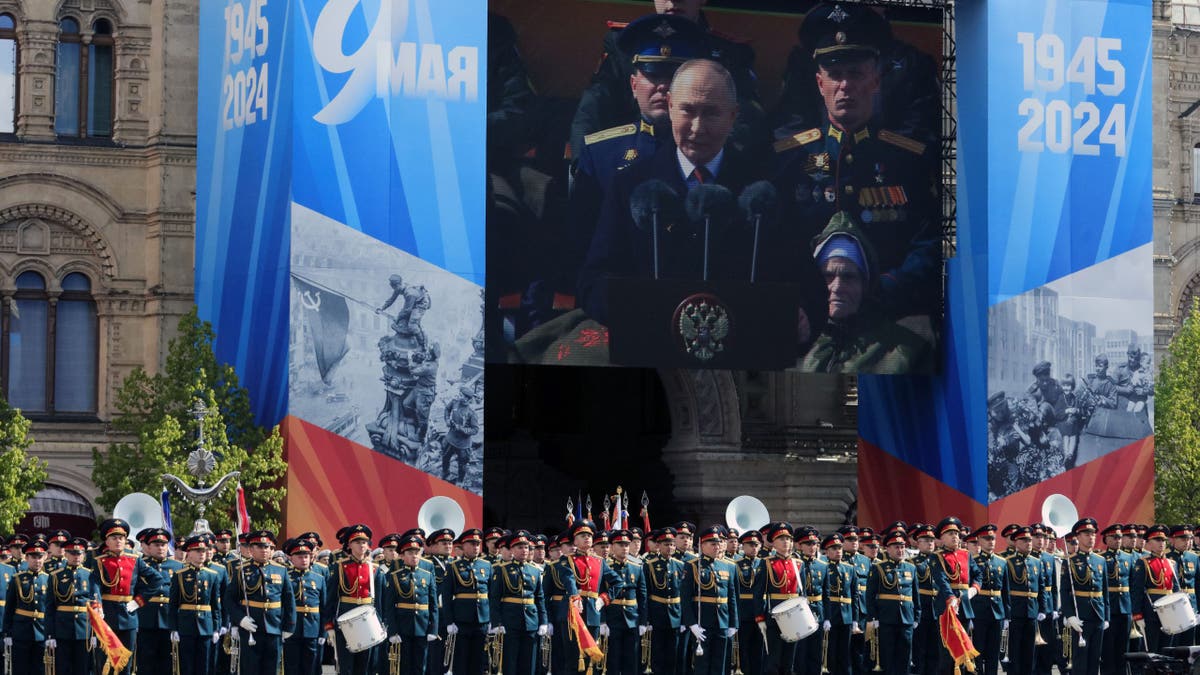
Russian President Vladimir Putin delivers a speech to mark the 79th anniversary of victory over Nazi Germany in World War II in Moscow. (Tian Bing/China News Service/VCG via Getty Images)
«By removing the pressure for Russian leaders to decide whether to launch a nuclear attack on a short timeline under pressure, Perimeter is meant to reduce the risk of miscalculation on both sides and to avoid wrong decisions with enormous consequences,» he added.
One of the primary concerns he raises is that while Russia’s views on AI align with those of other major powers, it may lack the ability to adopt those systems, especially in light of Western sanctions and export controls.
NATO’S $1.1B INNOVATION FUND INVESTS IN AI, ROBOTS AND SPACE TECH
In his paper, Bendett listed a number of factors that could otherwise impede Russia’ development and adoption of AI technology, namely the exodus of tech personnel at the start of the Ukraine invasion, lack of access to parts and data, and the impacted economy as major stumbling blocks Russia faces in its AI ambitions.
Bendett argued that Russia’s desperation to keep up with the West could drive officials to lean on China, Moscow’s increasingly close ally, to fill the gaps in development.
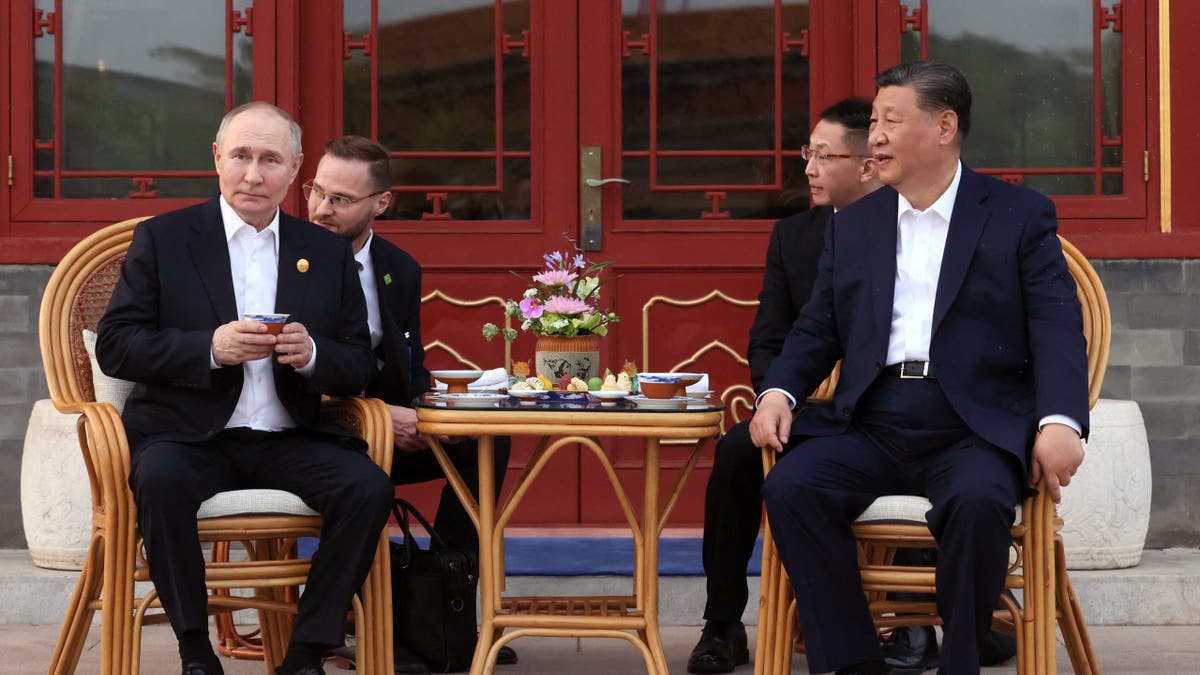
In this pool photograph distributed by the Russian state agency Sputnik, Russia’s President Vladimir Putin and China’s President Xi Jinping hold an informal meeting in Beijing on May 16, 2024. (Mikhail Kostiantyn Liberov/Libkos/Getty Images)
«One of the things we have discovered with the imposition of sanctions, starting in March of 2022, is that Russia can evade many of the sanctions and can actually acquire what it needs through willing partners or through partners who are unaware of certain transactions,» Bendett explained during an interview with Fox News Digital.
«This, of course, involves microelectronics, involves certain hardware and software solutions: As long as Russia maintains open trade and relationships with countries like China and India and a number of other states around the world, it is probably going to have access to certain technologies, certain concepts which are necessary for its high-tech development and in particular for artificial intelligence development,» he argued.
‘NO CONSENSUS’: HOUSE BACKS OFF OF PUSH FOR LARGE-SCALE AI REGULATIONS
Rebekah Koffler, a strategic military intelligence analyst and the author of «Putin’s Playbook,» told Fox News Digital that AI remains one of Russian President Vladimir Putin’s «top priorities,» with annual reports on progress in development and implementation.
«Putin once stated that the nation that controls AI will control the world,» Koffler said. «His concern is that if the West leads in AI, Western values and concepts will be embedded in it and not Russia’s values.»
«Putin believes that Russia will lose sovereignty if it loses competition in AI,» she added. «Putin once compared AI with nuclear weapons, and he estimates that AI will follow the trajectory of nuclear weapons development – once people realize what enormous danger AI represents if it is not managed properly, there will be attempts to control it.»
CLICK TO GET THE FOX NEWS APP
Koffler claimed that Putin has indirectly acknowledged the U.S. as the frontrunner on AI development, citing Elon Musk’s Neuralink as proof that the billionaire will «do what he thinks must be done» to advance technology.
Bendett and Koffler both lamented the difficulty in fully assessing Russia’s progress with AI due to the lack of «trustworthy intelligence» and the overreliance on statements from the Russian government, which Koffler warned are often «exaggerations.»
INTERNACIONAL
Recuperado de la cirugía en la cabeza, Lula da Silva inicia su tercer año de mandato con desafíos económicos y un llamado a la unidad

La cirugía
-
INTERNACIONAL2 días ago
Rusia bombardeó Ucrania en la madrugada de Navidad: ataque masivo con misiles al sector energético
-
POLITICA2 días ago
Victoria Villarruel se despegó de la polémica por el aumento de la dieta de los senadores: «Mi sueldo está congelado desde el año pasado»
-
ECONOMIA2 días ago
Otro fallo de la Justicia para que no se aplique el Impuesto a las Ganancias al sueldo
-
POLITICA1 día ago
Marcela Pagano denunciará penalmente a los agentes de tránsito por el escándalo con los diplomáticos rusos
-
POLITICA2 días ago
Nueva amenaza de paro: ATE exige la renovación de 50.000 contratos estatales
-
ECONOMIA1 día ago
Se aceleró la reactivación en el cuarto trimestre y la economía sale oficialmente de la recesión
















